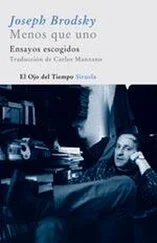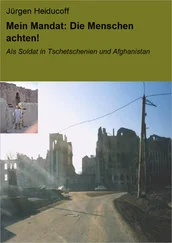Every year, five professors and the Director met discreetly over three weeks to create the questions of the entrance exam. They never used the computer. They always wrote down the questions by hand in a single notebook. They made three question-papers and gave them to three different printers. Every year, one of the professors in the JET panel went personally to the printers, posing as a representative of Aryabhata Tutorials. So, even the printers did not know what they were printing. They probably thought that they were printing the study material of one of the thousands of tutorials in the city. Sometime before the entrance exam, the Director would choose one of the three printed versions of the question-paper.
Ayyan had just learnt from the printers that the question-papers had been delivered. They were somewhere in the Institute, he was certain. The entrance exam was eight weeks away and he believed he had enough time to find out where the papers were stored. Three versions of a question-paper meant for ten thousand candidates, he calculated, would require at least three big cartons. Such a delivery could not have gone unnoticed. He began to wander around the various floors and identify rooms that were mysteriously locked. He found three. They were not sealed. Just locked. And keys were never a problem. But a search in those rooms yielded nothing. He enquired of the guards if they had seen anything, and asked his army of peons if they had ever been sent to a press to collect a consignment, or if they had seen the improbable sight of huge cartons being brought in personally by a professor. But they could not help him.
For two weeks, Ayyan spent the nights searching almost every room in the Institute for the question-papers. The Accounts Department, he learnt, had a safety vault but it was not big enough for even a single carton. It confused him that a massive consignment of three huge cartons could be so invisible. As the days went by, he realized that only one man could help him.
IN THE RELENTLESS night of the basement, Arvind Acharya became infatuated with his own shadow. He wandered through the space feeling the entertainment of being a one-dimensional ghost. He arranged the table lamps on the main desk in different ways to see himself on the walls and on the floor in disproportionate sizes. Most of the time he could not take his eyes off his shadow because he was enchanted by the thought that these illusionary images had the same memories and the same theories as he did. And the same wife. The shadows even asked him deeply why they should not be granted the status of real creatures since reality anyway was merely the perception of the eye. So he granted them that. He multiplied himself through his shadows and sat among them in the peace of knowing that there were at least some men who were exactly like him, who understood him and who even loved him.
He was preoccupied by the joy of a liberation he could not name but he was also tormented by a pubescent love. It was a love that was far more terrifying than what he had felt for Oparna. Because it was dedicated to his wife who had abandoned him five days ago.
Lavanya had told him that she could survive him so far because he had always tried his best not to appear mad, even though he was. But now, she could not bear his unreasonable joy at nothing at all, and the way he spoke to objects as though they had asked a question. She said his perpetual happiness made her feel that she was not required. He had asked her if the truth was that she was just embarrassed by him. She had held his hand and said, ‘Why would a woman be embarrassed by you? You are too beautiful, Arvind. It’s just that I can’t handle what you’ve become. It hurts me even though I know you are very happy.’ Then she gave clear instructions to the maids, packed her things in a suitcase, and left for Chennai to be with her interminable family.
So Acharya began to spend all his time in the basement. And he metamorphosed from a sudden cult on the pathways into a subterranean legend. It was not just the scholars of the Institute who began to seek him out but also scientists and students from other such places. They sat on the floor, or on the tables and chairs, and they talked about the philosophical future of physics, the ceaseless descent of eternal aliens, Stephen Hawking’s claim that the question why there was life in the universe would soon be answered, and about a lot of other things.
One evening in this basement world that was filled with over forty scientists and students, a strange figure walked in nervously.
‘I’m from the security department,’ the man told Acharya, casting glances at the others. ‘This is to inform you that a decision has been taken regarding your illegal stay in the Institute. You’ve been asked to vacate the premises immediately and stop using the basement as your office.’
‘But I like it here,’ Acharya said.
‘These are the orders from the management, Sir.’
A man in the audience who was a senior scientist from the Institute asked the informer to be reasonable.
The informer said helplessly, ‘I do not own the Institute, Sir. I am only informing him about a decision taken at the highest level.’
The congregation became silent and gloomy, and it slowly dissolved. Some reassured Acharya that they would think of a way to help him; others shook hands with him sombrely. When the last of the visitors, a scrawny boy with a shoulder bag strung on his back, was about to leave, Acharya commanded: ‘Boy, get me some clothes and a lot of chocolates. And a lot of bananas.’
*
For twelve days after that evening, Acharya did not stir from the basement. He feared that if he left the lab even for a walk on the lawns, someone would lock the door and he would be thrown out of the Institute. Visitors now began to arrive in greater numbers than before, bearing food and clothes. And soap. It became a spontaneous basement rebellion. Nambodri was flooded with polite calls to reconsider his decision. But he did not relent. In his calculation, the ill-feeling against him would be forgotten once Acharya vanished not only from the Institute but also, after his dismissal was formalized, from the Professors’ Quarters.
Acharya, for his part, did not budge. Security guards, ordered to throw him out, arrived and stood by his side, not having the courage to touch him. He would offer them bananas or ask them to get him some more. Then something changed. Late at night and early in the morning, the guards became accomplices, because that was the wish of Ayyan Mani. And Acharya went for quick walks on the campus.
One night, when he returned from his walk, he saw a figure sitting on a chair near the main desk. His first reaction was that one of his own shadows had been liberated from the walls. But he soon realized it was Ayyan. ‘Did I scare you, Sir?’ he asked.
‘No, Ayyan. You did not scare me. I hear you are the one who is taking care of me. Is that true?’
‘That’s my duty, Sir.’
‘What are you doing here so late?’
‘I came to talk to you.’
‘Come here, let’s sit on the floor and chat,’ Acharya said.
They leaned on the wall and stretched their legs. They could see each other in the dim light of a solitary bulb. Acharya never switched on all the lights because he did not want to abolish his shadow.
‘I hear your wife has left you, Sir,’ Ayyan said.
‘Yes. She went away. Everybody told her that I’d gone mad. She didn’t want others to know, you see.’
‘She will come back,’ Ayyan said. ‘Wives of an age are like evicted hawkers. They return in time.’
‘I don’t think so.’
‘I am very sure, Sir,’ Ayyan said. ‘You must go and get her. But you must now start pretending to be normal, as you used to before. A man cannot be exactly the way he wants to be and also dream of keeping his wife. You must control yourself a bit, Sir. And start thinking about your future.’
Читать дальше












